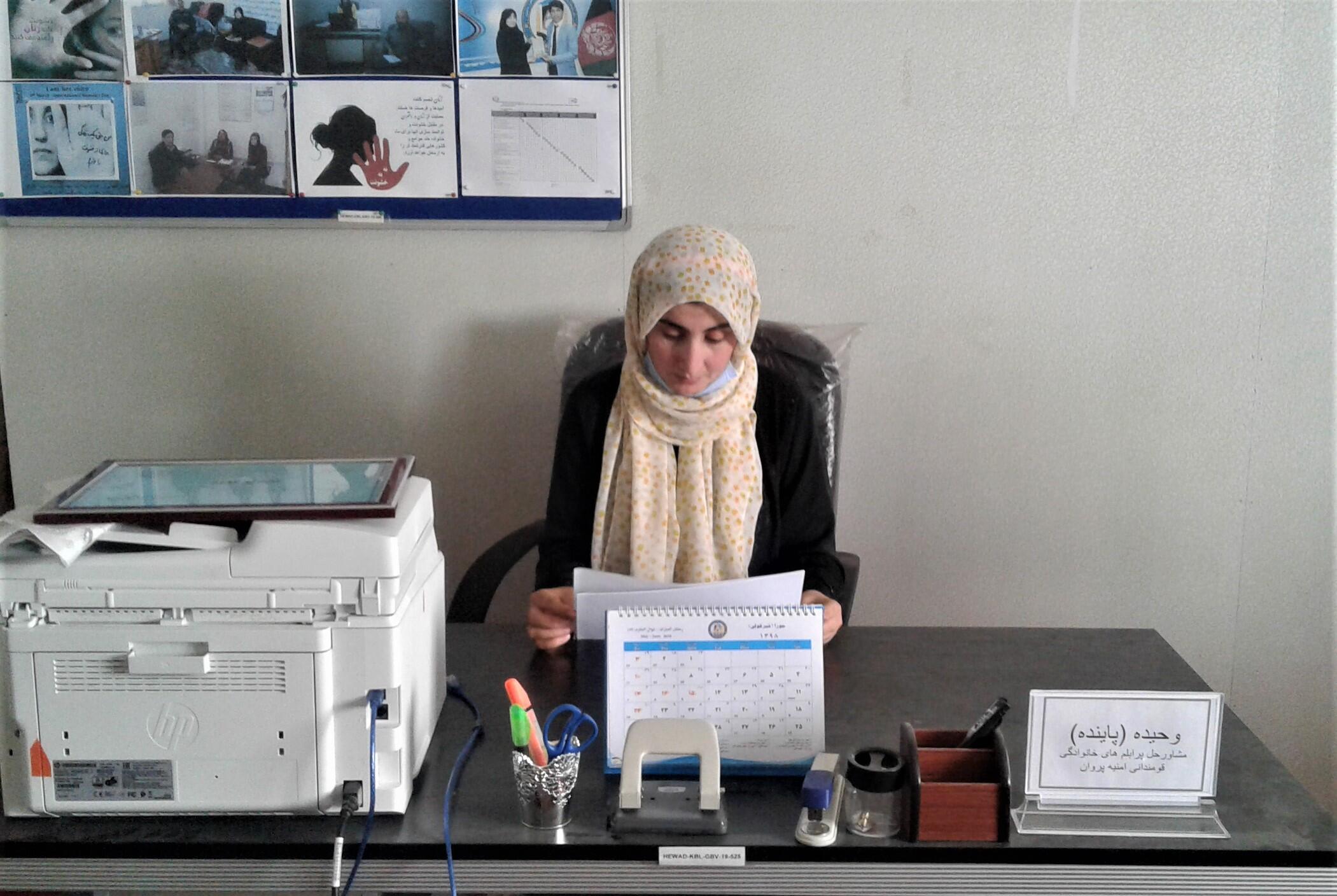Parwan, Afghanistan – “I remember being exhausted the first couple of months when I started my job at the Family Response Unit (FRU) in Parwan Province. My family asked me to quit the job”, says Waheeda Payenda, head of the FRU. “My parents were concerned but I knew it would change and that what I was doing was needed. And it did.”
Waheeda (27), determined to serve the survivors of Gender-Based Violence (GBV) as well as support and advocate for their rights, started her assignment as head of the FRU in September 2019. She knew it would be challenging work. However, her motivation and conviction to show the ability and capacity of women, allowed Waheeda to persevere and overcome the many challenges she faced at the onset. “I wanted to show that women can manage such tough assignments and make a difference.”
However, despite Waheeda’s commitment to her work, her daily engagement with GBV cases and exposure to seeing women in difficult situations who have been physically violated every day, has had its toll on Waheeda as she recognizes the systematic violence perpetrated against women. Luckily, women such as Waheeda are able to turn the challenges they see daily into their motivation to continue and Waheeda says, “I am where I am needed and want to be”.
Waheeda obtained her bachelor’s degree in Language and Literature from Parwan Higher Education Institute and began her career working with local media outlets. There, she first became exposed to the plight of many women in Afghanistan, and she knew that her calling was to support these women and girls. “During my work with media conducting of interviews, I learned that that local women are being violated regularly and that they are not able to receive enough support for justice”, she expressed. “Because the women didn’t know they have the right to complain against their perpetrators and seek justice they remained in the same situation.” This is what motivated Waheeda to seek work in the area of GBV service provision.
Waheeda describes how one of the most difficult careers for Afghan women is working within the security departments. “All security departments in this country are like military basis and surrounded by defensive walls and guarded by armed men.” Like many other Afghan women, in the first weeks of her assignment at the FRU, Waheeda was also worried about entering the compound where her offices were located. It was not only the threat of attacks against the compound, but also, simply, being a woman in that heavily male dominated setting. “Even my close friends were telling me it’s not good for a young lady to work with the security forces,” she remembers. “But I told them that I need to be there to support women and girls; and I’m committed to provide as much support as I can.”
Waheeda’s family learned of the importance of her work a few months after she joined the FRU as she was explaining the impact her work was having; and now they’re happy with her work. Despite traditional myths and challenges that still exist in their community, the family supports Waheeda to serve the survivors of GBV.
Counselling and mediation is an important part of Waheeda’s routine work. She discusses the situations with the victims and tries to create a peaceful and friendly environment for both the victims and their family members. “Communication and understanding is very important for the families and I explain and motivate the families to respect, listen, and understand each other.” She further elaborated, “the separation of a wife and husband is not the solution for ending GBV. Communication and understanding each other is the most important part of family life”.
Waheeda is now happy that in addition to her daily support to the women and girls, she has gained knowledge regarding GBV prevention and ending violence against women. She’s eager to use her ability to support GBV survivors more effectively.
“I hope we’re able to extend our support to those women and girls who live in rural areas and don’t have access to the cities for legal support. We need to raise awareness and reach those who live in the remote and hard to reach areas”, she expressed. “I am doing my part, but it will take more dedicated women to achieve a peaceful world for women.”


